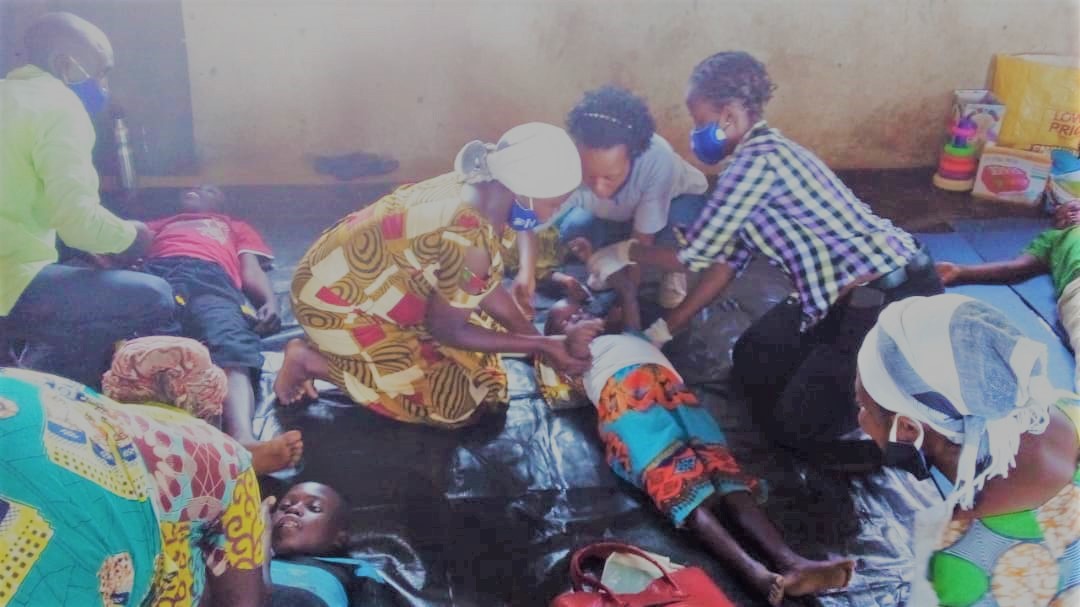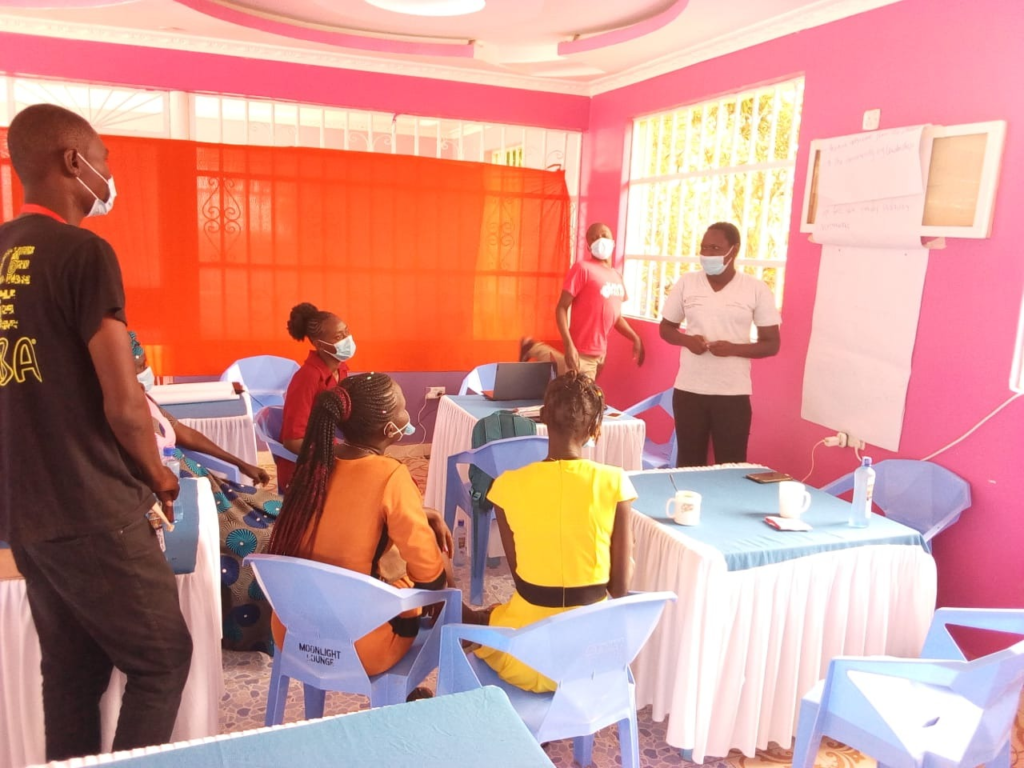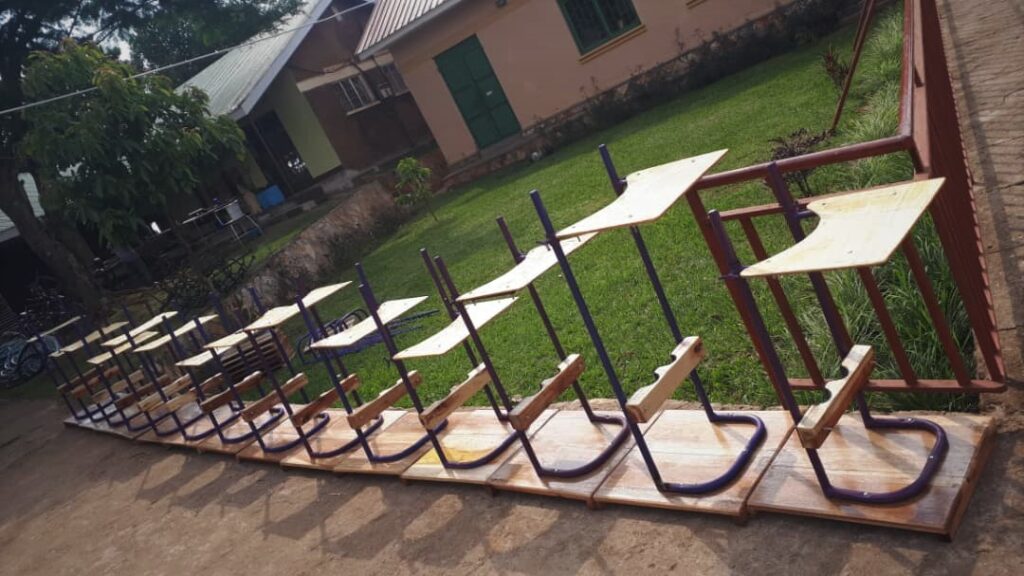What is the best thing about being a Physiotherapist?
Idah: The best thing about being a Physiotherapist is being able to help children to live to their maximum potential and help in their involvement in society. It is so rewarding to have children interact with communities and achieve independence.
What does a day in the field look like?
Idah: A typical field visit starts with our team mobilising the child’s parents/caregivers and we begin assessing the child’s condition. The caregiver would then share the child’s backstory, including their abilities and challenges. After that, I would get a hands-on assessment of the child’s body features and look if there are special cases. Sometimes, a child may not have physical challenges because they are autistic or epileptic. In such cases, I would tell the parents of their child’s need for special education and medical intervention, respectively.
What happens next after the above?
Idah: The next step would be conducting training sessions about the child’s specific condition to parents/caregivers. At this stage, we let parents know how we can help – either through the provision of assistive devices or clinical medication for children without physical disabilities. It is at this point that we also begin hands-on treatment as the parents observe. The last step would be to have parents doing a manual therapy demonstration to the child.
Why do you have parents demonstrate manual therapy on the child?
Idah: We make parents or the child’s primary caregiver demonstrate because the sessions are not daily. This is also to ensure that the child can continue receiving therapy even when they are away at home.
What message do you have for people who are not aware of these issues?
Idah: It’s important for people to know that children with disabilities can get help and are able to live meaningful lives. The role of physiotherapy in the lives of children with disabilities is important and can be lifelong. When they get the help they need, they can live a happy and normal life. All they need is a supportive environment.
The Xavier Project team in Uganda has been implementing this all-in-all learning programme in partnership with Comic Relief since 2019. The project supports the training of parents, teachers and community groups in three locations across Uganda – Kampala, Rwamwanja Refugee Settlement and Imvepi Refugee Settlement. The project seeks to empower refugee parents of children living with disabilities with skills and information on how to take care of children with various disabilities. Additionally, it also seeks to improve access to education of children living with disabilities to ensure they are included.
Please subscribe to our newsletter here to get updates about our work in Kenya and Uganda.




